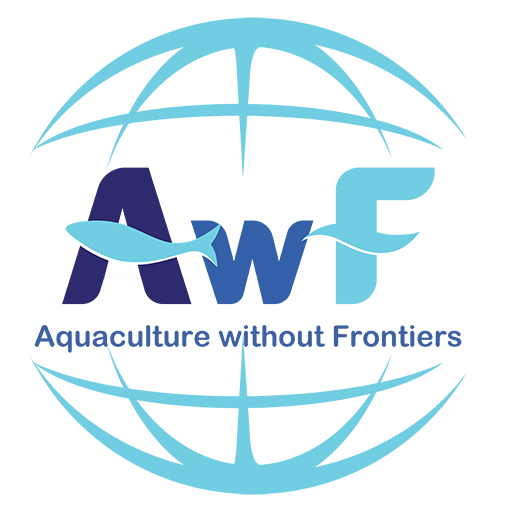Developing country student support for advanced fisheries and aquaculture economics course
Category:UpdatesA Tribute to Prof. M.C. Nandeesha (1957 – 2012)
Under the Sponsorship of FAO-FIPM, the organizers will provide 8 bursaries for students from developing countries according to the following specifications:
a) Contribution to cover travel, lodging, meals and incidental expenses of four participants from developing countries from the Mediterranean countries, in particular North Africa and the Near East.
b) Contribution to cover travel and living expenses of four participants from other developing countries (Africa, Asia and South America).
Deadline for applications is May 17th.
For further information and applications please send CV to:
Mr. Ignacio Llorente García
Grupo-IDES
Universidad de Cantabria (Spain)
Email: Ignacio.Llorente@unican.es
Background
Menéndez Pelayo International University (UIMP) has gained extensive experience and prestige in the organization of university-level courses and seminars. Active participation by well-known Spanish and foreign specialists and lecturers has led it to be considered one of Europe’s leading summer universities. Since its creation it has also been considered as the leading university in Spain in organizing courses in Spanish language and culture for foreigners.
More than eight thousand students attend its courses in Santander every summer. The academic programme, covering topical matters and areas of scientific interest, is complemented by a wide range of cultural activities.
In cooperation with other academic institutions and with FAO, UIMP will this year organize the second edition of the course on fisheries and aquaculture economics.
Economics and management sciences are of increasing importance in fisheries and aquaculture to understand the uncertain environments in production and Marketing. Changes in management systems, public policies and consumer preferences evidence the need of a continuous adaptation to the economic and social environment in which the activities take place. Aquaculture, meanwhile, is a relatively new harvest method complementing and replacing wild fisheries in the global seafood supply. It has become a sustainable alternative, despite of conflicts, to meet with the increasing World seafood demand.
The seminar intends to provide information on recent progress in the field of fisheries and aquaculture economics and set a framework for understand and assess the changes and developments of producers, consumers, and markets. The sessions will provide a discussion and exchange forum for major stakeholders involved in the value chain of fisheries and aquaculture, and a place to share and analyze the latest developments in the areas fisheries management, policies and marketing.
The course is oriented for participants with university degree or an equivalent professional experience, researchers, policy makers, industry players, consultants, students, advisors, and other specialists involved in the social topics of fisheries and aquaculture.
Program
Director: Prof. José Fernández Polanco
University of Cantabria (SPAIN)
Director: Prof. James A. Young
University of Stirling (Scotland, UK)
Secretary: Mr. Ignacio Llorente García
University of Cantabria (SPAIN)
National Panel Coordination:
Prof. Ladislao Luna
University of Cantabria (SPAIN)
Dates: 22 to 26 July 2013
Sponsors: Fundación Alfonso Martín Escudero (FAME). Food and Agriculture Organization of the United Nations (FAO)
Contact: www.uimp.es; ignacio.llorente@unican.es
Monday 22th
Morning
- Opening: Dr. Lahsen Ababouch. Director of FAO Fisheries Policy and Markets Division
- Session 1: Prof. James A. Young. University of Stirling, Scotland, UK.
- Contemporary Issues in the Marketing of Fish
- Session 2: Prof. Fernando González Laxe. University of A Coruña, Spain
- Positioning and strategies of aquaculture firms toward global issues
Afternoon
- Session 3: Prof. Trond Bjorndal. University of Porstmouth, UK.
- Prospects for increased rent generation from improved fisheries management
Tuesday 23th
Morning
- Session 1: Dr. Audun Lem. FAO Fisheries Policy and Markets Division
- An Overview of World Supply, Demand and Trade of Fish and Fishery Products
- Session 2: Prof. Frank Asche. University of Stavanger, Norway
- Demand and productivity growth as drivers of a successful aquaculture industry
Afternoon
- Session 3: Prof. Gunnar Knapp. University of Alaska Anchorage, USA.
- Long-Term Challenges for Wild Fisheries
Wednesday 24th
Morning
- Session 1: Mr. Roy Palmer. Global Aquaculture Alliance (Asia-Pacific).
- Aquaculture: Making the Most of Global Megatrends
- Session 2: Dr. Antonio Rodríguez. Fisheries Department of the Government of Galicia, Spain.
- New technologies in management and control of fisheries’ traceability. A case study in Galicia.
Afternoon
- Session 3: Dr. Philippos Papageorgiou. Aquaculture consultant, Greece.
- Seafood labelling; choice or necessity?
Thursday 25th
Morning
- Session 1: Prof. José Manuel Fernández Polanco. University of Cantabria, Spain.
- Market power and concentration in the seafood value chain
- Session 2: Dr. Antonio Garza de Yta. Latin American and Caribbean chapter of the World Aquaculture Society, President. Mexico
- Growth and development of aquaculture in Latin America
Afternoon
- Session 3: D. Juan Manuel García de Lomas Mier. CTAQUA, Andalucía, Spain
- Diversification of aquaculture production
Friday 26th
Morning
- Session 1: Mr. José Luis González Serrano. Spanish Ministry of Food & Agriculture.
- Structural measures as a tool for fisheries sustainability
- Session 2: Dr.Pilar Pereda Pérez. Cantabria Regional Ministry of Food & Agriculture.
- Fisheries and aquaculture in Cantabria
Closure. TBA
